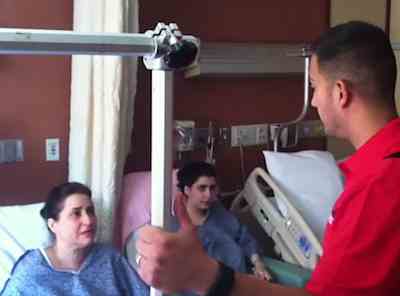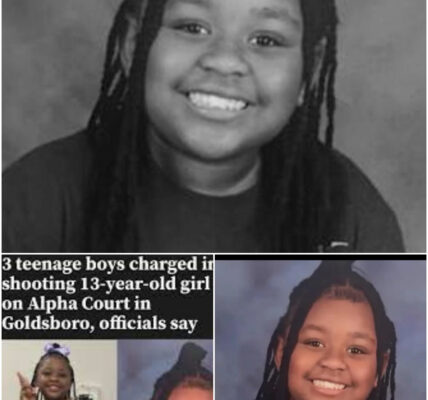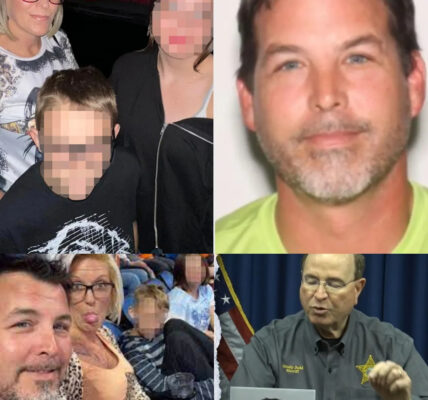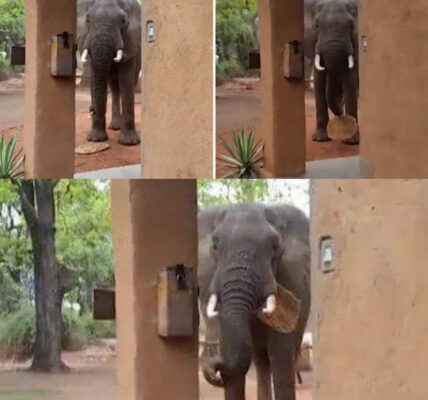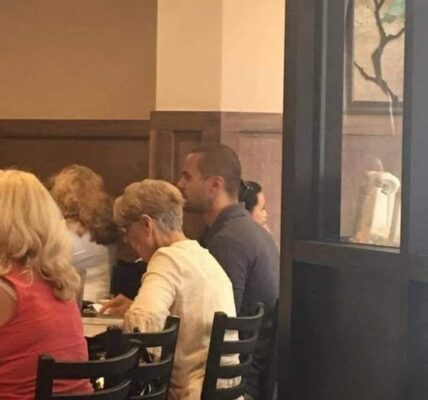In the chaos of the Boston Marathon bombing, lives were shattered in ways that words can scarcely capture. For Celeste Corcoran, a devoted mother, the blast left her with devastating injuries—both of her legs had to be amputated below the knee. Beside her, her daughter Sydney was also injured, her young life forever marked by that horrific day.
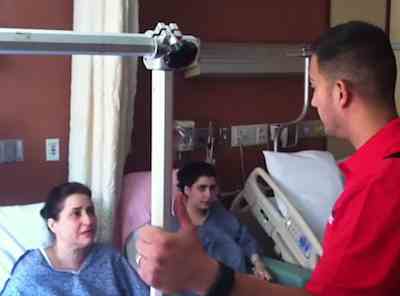
When the dust settled and the sirens faded, their world had changed. Celeste lay in a hospital bed, her body weak, her spirit shaken. The grief of losing her legs was overwhelming. She wondered how she would ever be able to care for her family again, how she would walk, cook, or even take a simple step outside. Sydney, recovering in another hospital room, tried to be strong for her mother even as she fought through her own pain.
And then, into that sterile space of grief and fear, came hope—dressed in Marine uniforms.
They were men who knew exactly what Celeste was facing. These were veterans who had themselves endured catastrophic injuries in combat. They, too, had lost limbs. They, too, had once believed their independence was gone forever. And yet, there they stood in front of her—not broken, but strong, moving with confidence on prosthetic legs.
One Marine leaned forward, his voice calm but certain: “You will be more independent than you ever were. This is the start of a new beginning.”
For Celeste, those words struck deeper than any medication or bandage ever could. They were a promise that life wasn’t ending. It was simply changing.

In the days that followed, Celeste and Sydney began to experience what they described as “incredibly uplifting” moments—instances of compassion, solidarity, and resilience that showed them they weren’t alone. Family, friends, strangers, and now Marines were rallying to remind them that recovery isn’t only about healing the body. It’s about strengthening the spirit.
Sydney, though young, drew courage from her mother’s resolve. And Celeste, in turn, drew courage from her daughter’s resilience. Together, they began to laugh again, to find slivers of joy in the middle of hardship. In one touching moment captured on video, Celeste was even able to joke—a sign that light was finding its way back into her life.
It is said that tragedy can strip away everything but also reveal what is most essential: love, courage, and the will to endure. For Celeste and Sydney, that truth was becoming clear. They were no longer just victims of a bombing. They were survivors, stepping into a future shaped not by what they had lost, but by what they still carried within them.
The Marines’ visit was more than symbolic. It was living proof that life after loss is still a life worth living—full of independence, purpose, and even joy. Celeste saw in them the possibilities waiting for her: the chance to walk again with prosthetics, to regain her independence, to live fully in ways she once thought impossible.
In many ways, this is only the beginning of their journey. There will be challenges ahead—pain, physical therapy, emotional hurdles, and moments of doubt. But there will also be victories: the first steps on prosthetic legs, the laughter that comes with family dinners, the quiet pride of proving to themselves that they are stronger than tragedy.
As Celeste and Sydney continue to recover, they carry with them the echoes of that hospital visit. The Marines didn’t just bring comfort; they brought a vision of the future, one where survival transforms into strength.
And for Celeste, that transformation has already begun. From devastation, she is moving toward hope. From loss, she is building a new beginning. And with her daughter by her side, and the support of those who understand her journey, she is proving that even the darkest days can give way to light.
Because sometimes, healing isn’t just about learning to walk again—it’s about learning to live again. And Celeste is already on her way.
